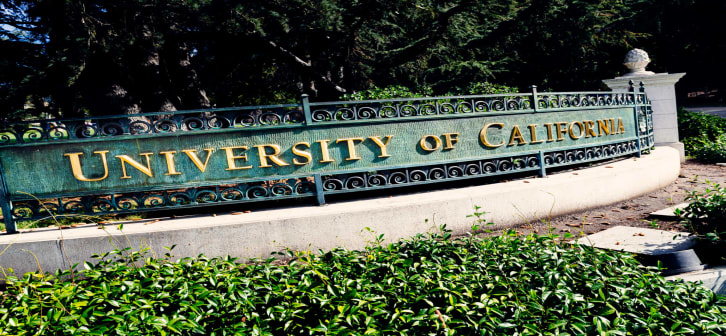UC Sees Slight Increase in Applications From Latino/a, Native American Students
Writer
Editor & Writer
Writer
Editor & Writer

- The University of California at the end of February released data on fall 2023 applications.
- There was a slight increase in first-year California applications from Chicano/a and Latino/a, Native American, and Pacific Islander students.
- The increase in applications from Native American students corresponds with the launch of UC's Native American Opportunity Plan, which waives tuition for qualified students.
The University of California (UC) system's streak of record-breaking undergraduate application growth is over.
At the end of February, UC released fall 2023 application data for its 10 universities. The data showed a 2.2% decrease (-5,411 applications) in total applications from the fall 2022 admissions cycle, when the university system received 251,179 total applications.
The total number of applications for fall 2023 includes 206,405 first-year admission applications and 39,363 applications for transfer admission.
The University of California, Los Angeles (UCLA) received the most first-year and transfer applications. The UC schools in San Diego, Berkeley, and Irvine also had a high number of applications.
Despite a decrease in total applications, there was an increase in applications from California first-year students from diverse backgrounds.
Applications from Chicano/a and Latino/a students increased by 2.2% to 51,515 applications, making up 39% of all in-state, first-year student applications. Chicano/a and Latino/a students comprise the largest race/ethnicity to apply to UC, compared to 31% Asian American students and 21% white students.
Additionally, applications from Native American students increased by 9.1%, or 69 students systemwide, and Pacific Islander student applications rose by 3.3%, or 13 students. However, African American student applications decreased slightly, falling by 1.4%, or 121 applicants.
The increase in applications from Native American students corresponds with the launch of UC's Native American Opportunity Plan, which waives tuition and student service fees for California residents enrolled in federally recognized Native American, American Indian, and Alaska Native tribes.
The largest decrease in applications was from nonresidents, including out-of-state and international students, which saw declines of 5% and 6.3%, respectively. Transfer applications also declined by 2.4%.
Applications from students transferring from the California Community College (CCC) system also fell by 3.7%, from 30,936 last year to 29,795, mirroring the decline in enrollment at CCCs since the COVID-19 pandemic.
According to UC, the systemwide number of applications is "unduplicated," which means that each student applying is counted once, regardless of how many campuses they applied to.
"Each year, the University of California extends admission offers to applicants with diverse experiences, intellectual curiosity, and the drive to succeed. This year will be no different," Han Mi Yoon-Wu, executive director of Undergraduate Admissions at the University of California, said in a news release.
"We will continue to work with our colleagues at the California Community Colleges and with partner organizations to ensure that the University recruits an applicant pool that mirrors California and maintains its world-class education for our undergraduates."
















